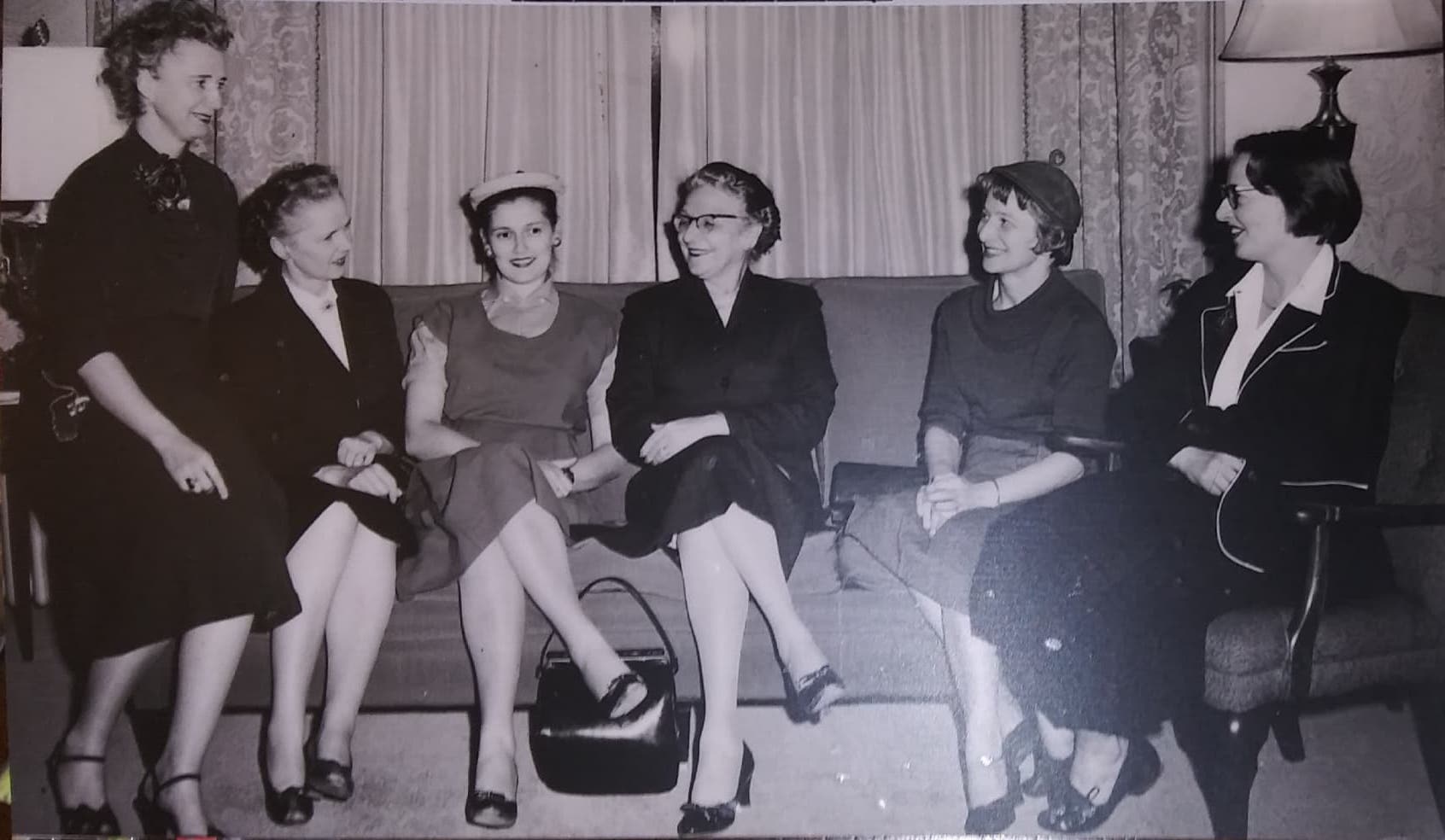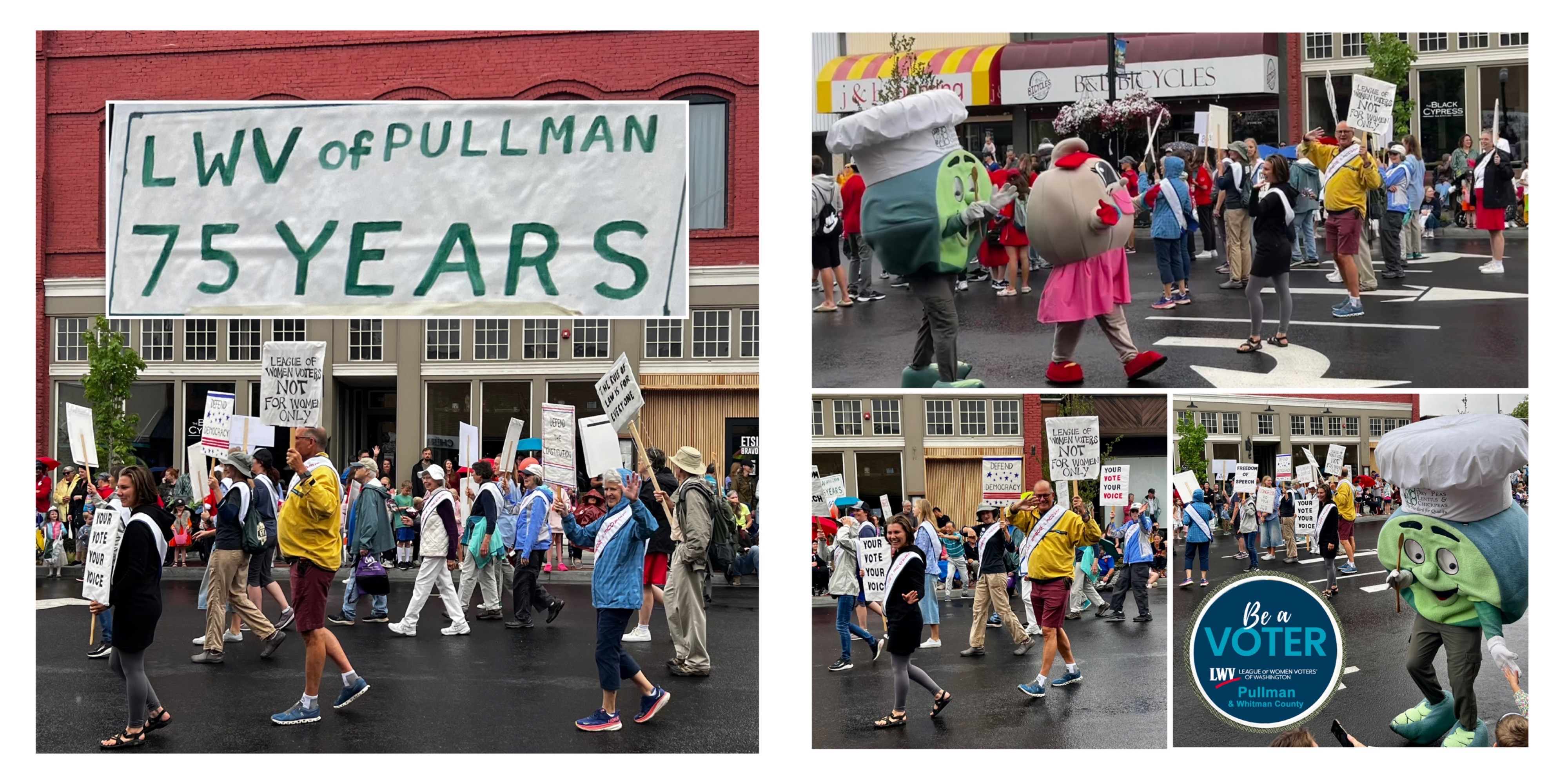About The Pullman League




Mission
The League of Women Voters, a nonpartisan political organization, encourages the informed and active participation of citizens in government, and influences public policy through education and advocacy.
New Members
New members are invited to connect with Kat Odell, our membership chair by emailing lwvpull@yahoo.com. There are two methods for self-orientation offered. One is a short presentation called “What You Need to Know”, and the other is the Pullman League of Women Voters Primer, an online orientation resource manual. It also contains the Pullman League Bylaws. All members are invited to fill out an Experience and Interests Survey for volunteering opportunities.
Organization
The structure of the League parallels the representative system of government under which we live. Our local, state and national governments are dependent one upon the other; the base is the individual citizen. The several League levels are also interdependent. Members determine the policies and program of all league levels. Membership is simultaneous on all three levels where applicable.
Nonpartisanship Statement
The League acts in support of, or in opposition to, selected governmental issues which its members have studied. It does not support or oppose candidates, factions or political parties. League members, as individuals, are urged to work in the political party of their choice. In order to protect the League’s nonpartisanship policy, guidelines regarding the political activities of the Board of Directors are reviewed frequently.
The League is fully committed to diversity, equity, and inclusion in principle and practice. These concepts are central to our current and future success in engaging all individuals, households, communities, and policy makers in creating a more perfect democracy. We acknowledge and honor the sovereignty of the first peoples of the Palouse Region and their descendants including our neighbors the Nez Perce (Nimiipuu) and Palouse (Palus) Tribes, the Confederated Tribes of the Colville Reservation, and Coeur d’Alene Tribe.
Diversity, Equity, and Inclusion
LWV is an organization fully committed to diversity, equity, and inclusion in principle and in practice. Diversity, equity, and inclusion are central to the organization’s current and future success in engaging all individuals, households, communities, and policy makers in creating a more perfect democracy.
There shall be no barriers to full participation in this organization on the basis of gender, gender identity, ethnicity, race, native or indigenous origin, age, generation, sexual orientation, culture, religion, belief system, marital status, parental status, socioeconomic status, language, accent, ability status, mental health, educational level or background, geography, nationality, work style, work experience, job role function, thinking style, personality type, physical appearance, political perspective or affiliation and/or any other characteristic that can be identified as recognizing or illustrating diversity.
Financing
The League is a non-profit organization financed by member dues and contributions, and through community and national finance drives which enable public-spirited citizens to help support the work of the League. Dues are collected at the local League level with Per Member Payment (PMP’s) assessments made by National and State Leagues upon the local Leagues. A tax deductible LWV Education Fund can be used for publications and Voter Service information.
Principles
The League of Women Voters Believes…
-
in representative government and in the individual liberties established in the Constitution of the United States.
-
that democratic government depends upon the informed and active participation of its citizens and requires that governmental bodies protect the citizen’s right to know by giving adequate notice of proposed actions, holding open meetings and making public records accessible.
-
that every citizen should be protected in the right to vote; that every person should have access to free public education which provides equal opportunity for all; and that no person or group should suffer legal, economic or administrative discrimination.
-
that efficient and economical government requires competent personnel, the clear assignment of responsibility, adequate financing and coordination among the different agencies and levels of government.
-
that responsible government should be responsive to the will of the people; that government should maintain an equitable and flexible system of taxation, promote the conservation and development of natural resources in the public interest, share in the solution of economic and social problems which affect the general welfare, promote a sound economy and adopt domestic policies which facilitate the solution of international problems.
-
that cooperation with other nations is essential in the search for solutions to world problems, and that the development of international organization and international law is imperative in the promotion of world peace.